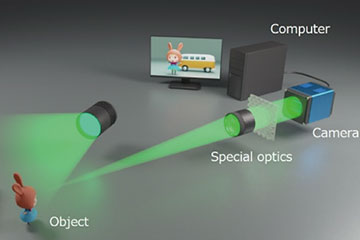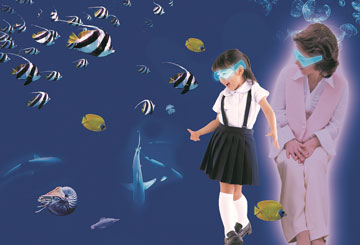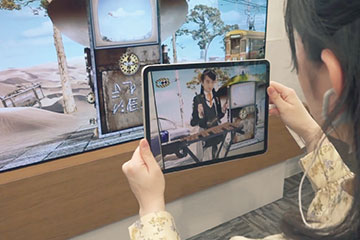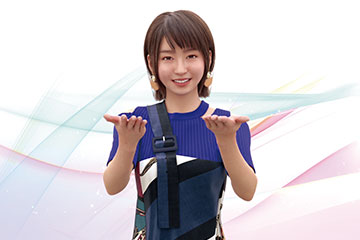R&D
Immersive Media ― Experiencing more realistic worlds ―
Universal Services ― Anytime, anywhere, to anyone ―
Frontier Science ― Creating the media of the future through fundamental research ―
-

Computer science
- Natural language processing
- Image/audio analysis
-
Social science
To facilitate the creation of trustworthy, dependable content, we are working with NHK Broadcasting Culture Research Institute to explore approaches grounded in social science for analyzing and addressing the ethical, legal, and social issues (ELSI) of AI and big data technologies.
-
Cognitive science
We are developing content delivery and presentation technologies that improve the quality of experience, based on the characteristics of human vision, hearing and somatic senses, and utilizing knowledge from cognitive science.
-

Materials science
- Imaging device
- Display
- Storage device
Others
Contributing to society
Many of the achievements by NHK STRL are open to the public. We welcome anyone taking advantage of our patented technologies and other expertise. To date, the fruits of our R&D have been widely used in areas of society other than broadcasting-related fields. They have been applied in medical imaging, architecture and other industrial fields, and have also been used in education and museums.
Standardization
We contribute to creating standards in Japan, through organizations such as the Association of Radio Industries and Businesses (ARIB) and the IPTV Forum, to promote practical implementation and broad use of our R&D results. We also contribute to international standards at organizations including the International Telecommunications Union (ITU), the Society of Motion Picture and Television Engineers (SMPTE), the Moving Picture Experts Group (MPEG) and the World Wide Web Consortium (W3C). For example, the ITU Radiocommunication Sector (ITU-R) has issued recommendations for our HDTV program production standards, the ISDB-T format for digital terrestrial broadcasting, and the ISDB-S format for digital satellite broadcasting. Several technologies for UHDTV have also been recommended, including a wide-color-gamut, high-frame-rate, high-dynamic-range video format, the 22.2 multi-channel audio format, and ISDB-S3, a transmission format for satellite broadcasting. At MPEG, the VVC video coding format was standardized.
International cooperation
NHK STRL has introduced various studies and achievements at international conferences while promoting joint research by sending our staff to universities, research institutions, and corporate labs abroad. We promote research into next-generation broadcast technology through the Media Technology Futures (MTF) group, a group of broadcasting research organizations that includes the British Broadcasting Corporation (BBC). Furthermore, we play a significant role in the ABU (Asia-Pacific Broadcasting Union), welcoming many researchers from fellow member broadcasters. We also cooperate with the worldwide deployment of the Japanese standard ISDB-T for digital terrestrial television broadcasting.




